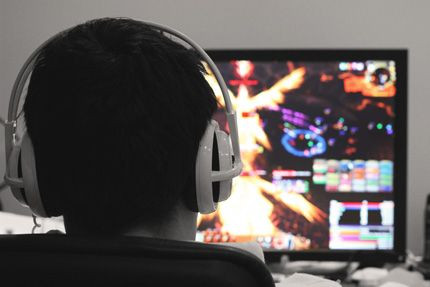Violence In Video Games: The New Norm

It has long been understood that video games do more than just provide a distraction for children.
Now, a recent study led by Malena Ivarsson from the Stress Research Institute at Stockholm University helps prove that the violence in video games is not innocuous. When comparing teenage boys exposed to violent and non-violent video games, researchers found that boys with more exposure had fewer physical reactions, like an irregular heart beat of trouble sleeping, to psychological and emotional stress than those with less exposure to the violence in games.
Given the prevalence and gravity of violent acts performed by young adults today, the findings of this study come at an appropriate time. Not only is this proof that the games are partially responsible for the aggressive acts, as Ivarsson and colleagues have said to have found in previous studies, but now we can see where the acceptance of such acts amongst teeangers comes from.
In the study, groups of boys were either instructed to play a violent or nonviolent game for two hours for two evenings a week. The differences in psychological and emotional reactions along with sleep quality were measured in the two groups as a means to compare their overall reactions and sensitivities after game play.
The boys who normally played non-violent video games reported lower sleep quality the morning after playing a violent game. This group also reported becoming easily upset after playing violent games.
Meanwhile, the boys playing only violent games reported no difference in sleep quality on the nights they were playing their violent games as compared to nights when they were not playing the games.
In previous studies, researchers have found that violent games induce aggressive behavior in children and teens. These studies had groups of children play violent video games and then measured their heart rate and heart rate variability (HRV). These are convenient ways to measure physical responses to psychological and emotional stress, since stresses often effect heart rate and breathing first.
Ivarsson and colleagues found that heart rate and HRV measurements in boys playing non-violent video games were respectively higher and more variable than the boys playing violent games. This indicates that the non-violent group was more sensitive to being negatively affected by the violent video games.
The group told to play violent games on a regular basis had normal heart rate and very little heart rate variability when exposed to violent video games, indicating a dulling of emotional and psychological responses.
Desensitization, or the reduction of emotional and psychological reactions, is largely at play here. The group of boys who regularly exposed to violent games had fewer responses to violence on the screen in terms of changes to sleeping habits, alteration in outlook, as well as the physical reactions measured by heart rate.
If, in the short term, violent video games make teens more aggressive, what will long-term emotional desensitization mean for society at large?



























